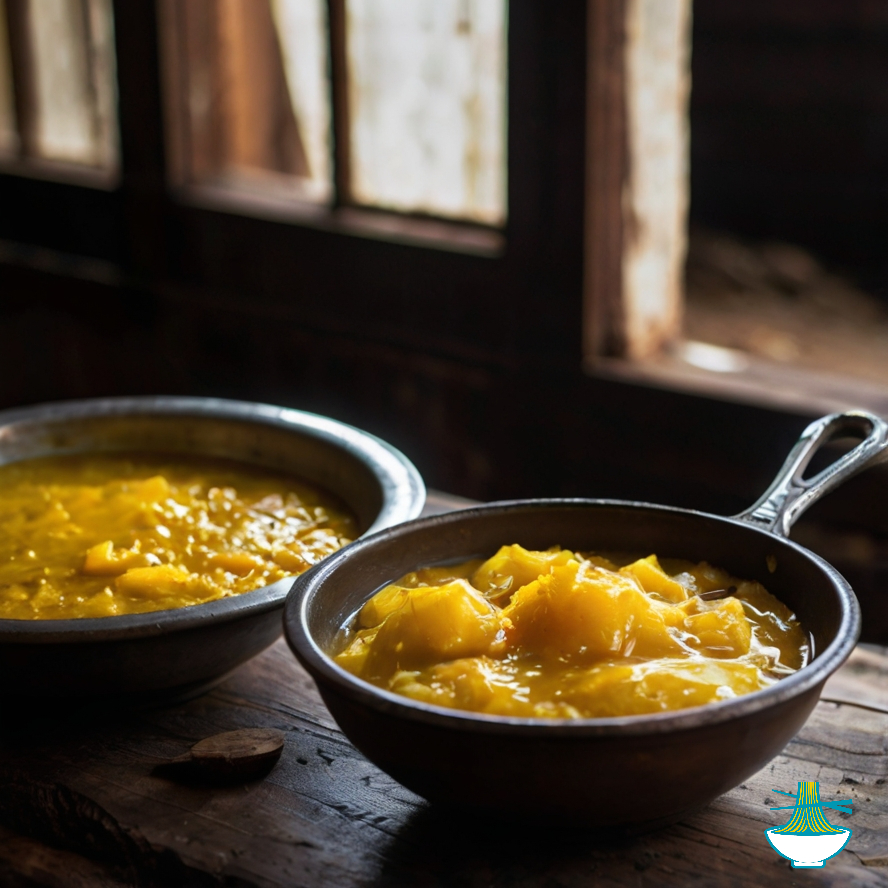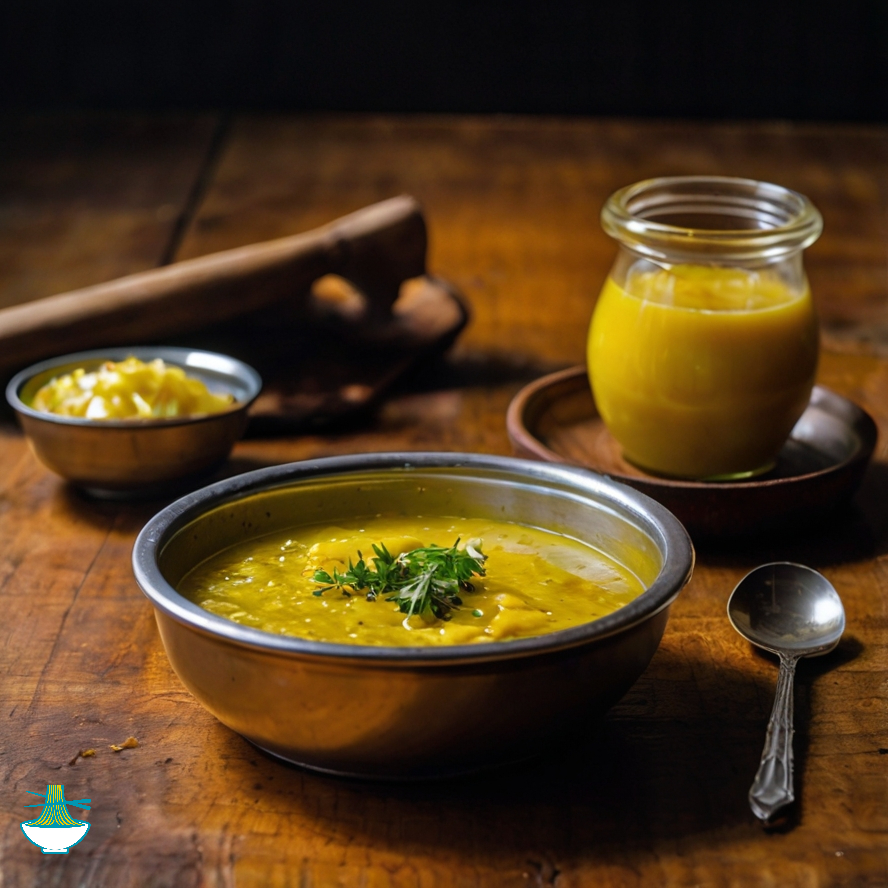Eshabwe, a creamy spread of ghee and cow's milk,rooted in Ankole tradition,holds cultural importance and graces special occasions you can cook it by easy steps.
To prepare Eshabwe, ghee is heated and combined with cow's milk until it reaches a smooth and creamy consistency. The resulting mixture is seasoned with salt to taste, creating a savory and indulgent spread that pairs wonderfully with various foods such as ugali (maize porridge) or served as a dipping sauce for meats.
Beyond its delicious taste, Eshabwe carries historical and cultural significance, reflecting the traditions and culinary practices of the Ankole people. Its preparation has been passed down through generations, with each family adding its own unique touch to the recipe. Today, Eshabwe continues to be cherished as a symbol of Ugandan heritage and is enjoyed by locals and visitors alike.
Ingredients:
- 1 cup ghee (clarified butter)
- 1/2 cup cow's milk
- Salt to taste
Method:
1. In a saucepan, heat the ghee over medium heat until it's melted and warm.
2. Slowly add the cow's milk to the melted ghee, stirring continuously to combine the two ingredients.
3. Continue stirring the mixture over medium heat until it becomes smooth and creamy.
4. Season the Eshabwe with salt to taste, adjusting the amount according to your preference.
5. Once the desired consistency and seasoning are achieved, remove the saucepan from the heat.
6. Allow the Eshabwe to cool slightly before serving it as a spread or sauce alongside your favorite dishes.
Enjoy the rich and flavorful Eshabwe as a delicious addition to your meals!
Nutrition Value:
1. Ghee (Clarified Butter) - 1 cup
- Calories: Approximately 1927 kcal
- Carbohydrates: 0g
- Protein: 0g
- Fat: Approximately 218g
- Sodium: 0mg
- Cholesterol: Approximately 610mg
- Vitamins: Contains small amounts of fat-soluble vitamins like vitamin A, E, and K.
- Minerals: May contain trace amounts of calcium and phosphorus.
- Nutritional Benefits: Ghee is rich in healthy fats, including conjugated linoleic acid (CLA), which may have potential health benefits such as improving heart health and aiding in weight management. It also adds a rich flavor to dishes.
2. Cow's Milk - 1/2 cup
- Calories: Approximately 61 kcal
- Carbohydrates: Approximately 5g
- Protein: Approximately 3g
- Fat: Approximately 3g
- Sodium: Approximately 51mg
- Cholesterol: Approximately 12mg
- Vitamins: Contains significant amounts of calcium, vitamin D, vitamin B12, and riboflavin (vitamin B2).
- Minerals: Rich in calcium, phosphorus, and potassium.
- Nutritional Benefits: Cow's milk is an excellent source of calcium, which is essential for bone health and muscle function. It also provides high-quality protein and essential vitamins, making it a nutritious addition to the diet.
3. Salt (to taste)
- Calories: 0 kcal
- Carbohydrates: 0g
- Protein: 0g
- Fat: 0g
- Sodium: Varies depending on the amount added.
- Cholesterol: 0mg
- Vitamins: Generally not a significant source of vitamins.
- Minerals: Primarily consists of sodium chloride.
- Nutritional Benefits: While salt itself does not provide significant nutritional benefits, it enhances the flavor of dishes. However, excessive salt intake can contribute to health issues such as high blood pressure, so it's important to use it in moderation.
These nutritional values are approximate and can vary based on factors like brand and processing methods.


Comments